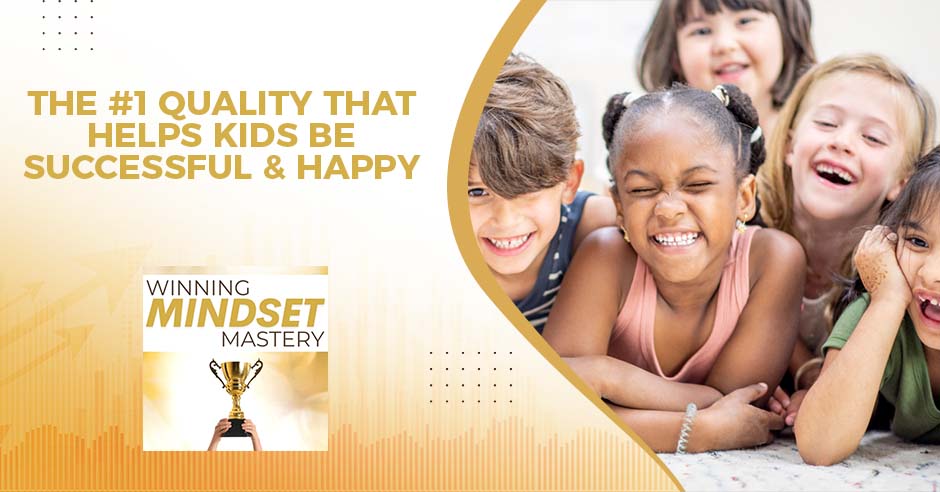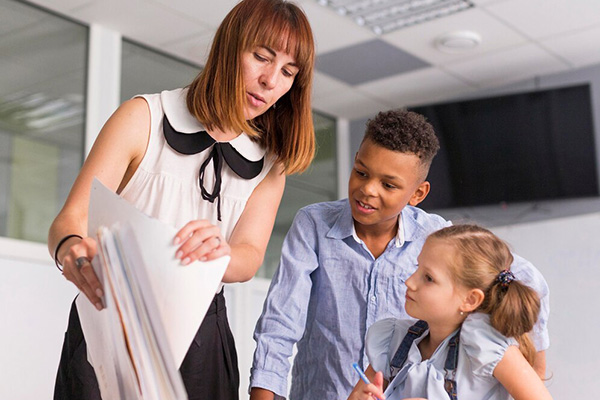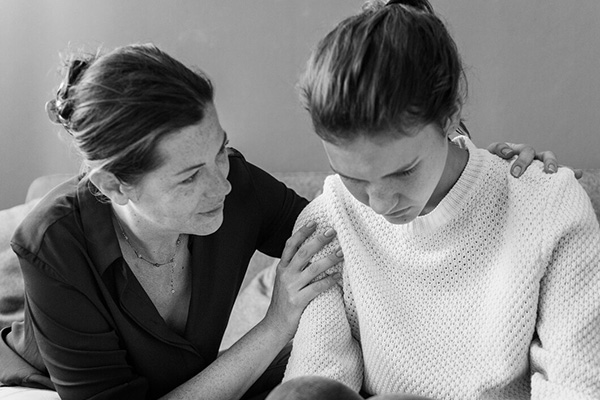
What is the number one quality that will help a child cultivate a winning mindset? For April Shprintz, it is self-compassion. In this episode, she breaks down three simple ways to help children develop this character early on in their lives.
—
Listen to the podcast here
The #1 Quality That Helps Kids Be Successful & Happy
I am glad you’re here. In the past few weeks, I’ve been traveling and doing a lot of workshops and keynotes on winning mindset and leading others through leading yourself. One of the pieces of feedback I keep getting is, “It would’ve been incredible if I had learned to do these things when I was a kid.” It helped me realize that I would love to help parents develop a winning mindset in their kids and let them know the number one quality that will help a child have a winning mindset and three ways that you can help them develop it.
The number one quality that helps kids not only have a winning mindset but be happier, more successful, and more well-adjusted is self-compassion. We’re great about teaching them empathy, helping them understand how to have a high EQ, and understand what’s going on with others. We don’t always take the time to teach them self-compassion. If you’re asking yourself, “What exactly is self-compassion? Is it to be nice to myself?”

Number One Quality: We are great at teaching kids empathy and helping them understand how to have a high EQ. However, we don’t always take the time to teach them self-compassion.
The best way I can define it for you is to treat yourself the way you would treat a friend if they made a mistake or did something that was different than they wanted to do, and if they’ve had a failure. Self-compassion would be treating yourself as kindly as you would someone you were good friends with. Candidly, if you’re my generation, I am Gen X. Even if you’re a Millennial, you haven’t been taught how to have self-compassion. That may be something that you taught yourself later on in life. Another thing I hear from folks is, “I would love to love myself, but I don’t know how.” Self-compassion is the first step to that.

Number One Quality: Self-compassion is treating yourself as kindly as you would a good friend.
If you’re looking to teach this to your kids, number one, that is a great way of explaining it. Be as kind to yourself as you would your best friend. Here are three steps for how you can help them develop this within themselves. The first one is to talk to your kids the way that you want them to talk to themselves. Regardless of whatever generation you’re in, whatever thing you’re toughest yourself about in your head, you picked up from an authority figure, maybe one of your parents, a coach, or a well-meaning adult who was in your life.
The things we heard that were negative, tough, and harsh corrections, a lot of us internalized, integrated with, and we do it ourselves. It could be around how good of a student you are, what you weigh, or how well you do at a sport. It’s all sorts of things. For our kids, helping them by talking to them the way that we hope they talk to themselves can be incredibly powerful for them.
The second one, and we talk about this in mindset all the time, is to model to them what it looks like to be compassionate with yourself by doing it for yourself out loud. You make a mistake. Let’s say you go the wrong way, and you get lost. Instead of saying, “This is stupid, I can’t believe I did that,” whatever type of self-talk you might have out loud, take the time to mentally go through what you would hope that your kid would say to themselves, like, “I made a mistake. We’re going to be late. It’s no big deal. It happens to everyone. We got to see this different side of town.”
You’re modeling a lot of your reframing and being kind to yourself in that reframe, but by doing that, your kids are going to pick up on it and copy it. If you haven’t tried modeling things for folks yet in your life, all you have to do is pay attention to how often in your life. People do what you do instead of what you say. It can be incredibly powerful when you’re mindful about it, and you’re modeling the things that you want them to pick up.
The third step is to talk to your kids about how they handle their feelings. This can be a great exercise for us because if you’re not someone who recognizes the way that you’re feeling and why you’re feeling the way you are, going through this process with your kids can benefit you. Let’s say they are upset, angry, or flustered. Talk to them about, “How are you feeling? How does it feel in your body? What do you feel in your stomach or your chest? Where is it? What happened before you felt this way? What do you want to do when you feel this way? What are some things that we can do together to help you feel better?

Number One Quality: When your kids are upset, ask them how they are feeling and what they want to do. Let them know you are there to help them feel better.
Some of these are going to be things that they’ll say to you. For some of these, you may have to coax and coach them on things that can help them feel better. Giving them that awareness and helping them deal with their feelings can be incredibly helpful to them. Keep in mind. We all feel feelings differently. There are some of us who, when we feel feelings, want to throw them back out into the world. There are others of us who, when we feel feelings, want to stuff them down and not express them.
Whichever way your child chooses to deal with feelings, allowing them to be aware of them, to know what they are, and giving them tools, whether that is helping them learn to reframe or know that things are okay to deal with those feelings, will put them ahead of the game. Anything else that we do with our kids gives us the ability to learn, improve, and get better in our own lives.
Whichever way your child chooses to deal with their feelings, give them the support and tools to let them know that it is okay to have those feelings. It will put them so far ahead of the game. Share on XI hope this works wonderfully for you. I’d love to hear from you about it. Don’t forget. You can always reach out to me on my website, WinningMindsetMasteryPodcast.com. There is an Ask April section all the way at the bottom where you can leave me a voice message, and I will respond to you personally and privately. You can let me know how this is going or ask any follow-up questions that you have. Here’s to your success.





